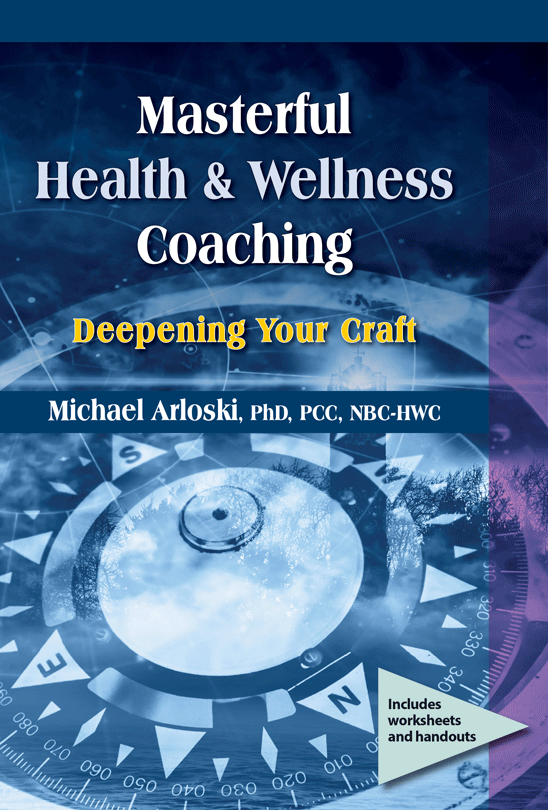Compassionate Detachment

January 2022! Welcome to a New Year and all of its potential. Ready to put the stresses and the tragedies of 2021 in the rearview mirror it’s a time to set intentions for a better year ahead. Hopefully you had some respite over the winter holidays and are ready to charge ahead in a positive way. Yet, the carryover, perhaps hangover, from that last year is very real for many people including ourselves and the clients we serve.
As we listen compassionately to stories of loss, grief, and challenges of all kinds, we need to find a way to be there for our clients and yet care for ourselves as well. Compassion fatigue is a common experience when we are exposed to too many stories of strife and trouble. How can we refill our own cup when it seems at times like this, others are draining it? I address this issue in Chapter Five of my new book. I offer this to you in my own spirit of compassion.

From Chapter Five – Masterful Health & Wellness Coaching: Deepening Your Craft, by Michael Arloski
Compassionate Detachment
We practice compassionate detachment for the benefit of our client and for our own benefit as well.
Compassionate detachment is respecting our client’s power enough to not rescue them while extending loving compassion to them in the present moment. Simultaneously compassionate detachment is also respecting ourselves enough to not take the client’s challenges on as our own and realizing that to do so serves good purpose for no one.
Compassionate detachment is an honoring of our client’s abilities, resourcefulness, and creativity. We remain as an ally at their side helping them to find their own path, their own solutions. We may provide structure, an opportunity to process thoughts and feelings, a methodology of change, and tools to help with planning and accountability, but we don’t rescue. As tempting as it is to offer our suggestions, to correct what seem to be their errant ways, to steer them toward a program that we know works, we don’t. We avoid throwing them a rope and allow them to grow as a swimmer. Sure, we are there to back them up if they go under or are heading toward a waterfall. We are ethically bound to do what we can to monitor their safe passage, but we allow them to take every step, to swim every stroke to the best of their ability.
To be compassionate with a client we have to clear our own consciousness and bring forth our nonjudgmental, open and accepting self. We have to honor their experience.
"Only in an open, nonjudgmental space can we acknowledge what we are feeling. Only in an open space where we're not all caught up in our own version of reality can we see and hear and feel who others really are, which allows us to be with them and communicate with them properly."
Pema Chodron, When Things Fall Apart
Compassionate detachment is also about giving ourselves permission to protect ourselves. Being in proximity to the pain of others is risky work. There are theories about the high rates of suicide among physicians and dentists based on this phenomenon. Compassionate detachment is also about being detached from outcome. We want the very best for our clients and will give our best toward that goal, but we give up ownership of where and how our client chooses to travel in the process of pursuing a better life. Their outcome is theirs, not ours.
Compassionate detachment is not about distancing ourselves from our client. It is not about becoming numb mentally, emotionally, or physically. It is not about treating our clients impersonally.
Compassionate detachment is being centered enough in ourselves, at peace enough in our own hearts, to be profoundly present with our clients in their pain, and in their joy, as well.
Masterful Health & Wellness Coaching: Deepening Your Craft, by Michael Arloski, Ph.D., PCC, NBC-HWC
https://www.amazon.com/Masterful-Health-Wellness-Coaching-Deepening/dp/1570253617/ref=sr_1_3?crid=1MJ0IKCHU30MJ&keywords=arloski+wellness+coaching&qid=1641835655&sprefix=Arloski+%2Caps%2C200&sr=8-3
Michael Arloski, Ph.D., PCC, NBC-HWC is CEO and Founder of Real Balance Global Wellness Services, Inc. (www.realbalance.com). Dr. Arloski is a pioneering architect of the field of health and wellness coaching. He and his company have trained thousands of coaches around the world. Dr. Arloski’s newest book is Masterful Health & Wellness Coaching: Deepening Your Craft








Only registered and logged in readers can leave comments.